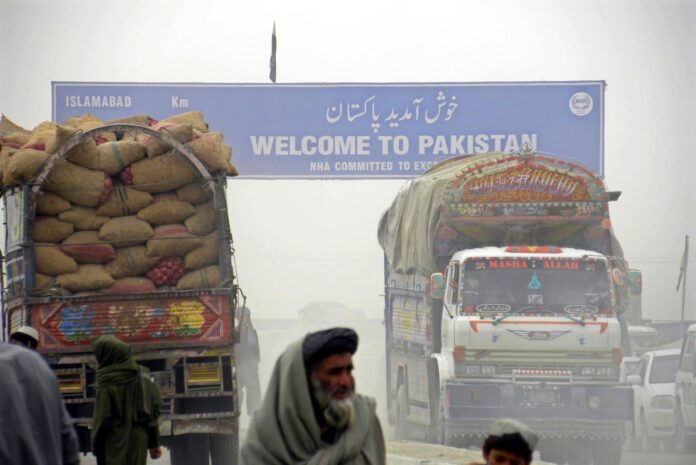Pakistan’s transit trade sector is grappling with a major crisis as bonded carriers face over Rs300 million in additional costs for installing new tracking devices under a 90-day interim arrangement introduced by the Directorate of Transit Trade (DTT).
According to a news report, the interim tracking system, which excludes Container Surveillance Devices (CSDs), has drawn criticism for its potential to increase cargo pilferage. Industry experts warn the lack of CSDs compromises the integrity of cargo monitoring during transit.
The DTT has mandated the use of Prime Mover Devices (PMDs) through designated companies, including NLC Smart Solutions, V-Track, Askari Insurance, and Falcon-I. However, these companies have declined to install CSDs during the interim period due to the absence of formal licensing agreements.
Reports indicate abnormal cargo stoppages and poor coordination between drivers and convoys. The Pakistan Business Council (PBC) has flagged serious concerns about potential cargo diversions and revenue losses.
“Without monitoring devices on container locks, there is no assurance that trucks are carrying the intended cargo,” the PBC stated. Misuse of transit trade arrangements, it added, undermines tax revenues, disrupts local industries, and impacts employment.
The All Pakistan Customs Bonded Carrier Association (APCBCA) has opposed the new system, citing violations of Rule 1118(1), which mandates both PMDs and CSDs. The association highlighted that bonded carriers have already invested Rs560 million in previous tracking devices, now rendered obsolete.
A senior customs official admitted regulatory lapses, including the delayed audit of TPL Trakker, a previously dominant tracking firm. TPL’s license was terminated in December 2024 after allegations of inefficiency and overcharging.
Despite this, TPL Trakker submitted an expression of interest (EOI) for a new license. It also claimed that repeated proposals for improved tracking devices had been ignored by customs authorities.
Critics argue that the customs department’s approach has created operational chaos, jeopardizing the country’s transit trade. The lack of a comprehensive regulatory framework has further fueled uncertainty.
As the 90-day interim period progresses, industry stakeholders are urging a transparent, long-term solution to address transit trade monitoring challenges.
Experts emphasize the need for a robust regulatory framework, equitable opportunities for tracking firms, and improved digital security measures to ensure the smooth functioning of Pakistan’s transit trade operations.




